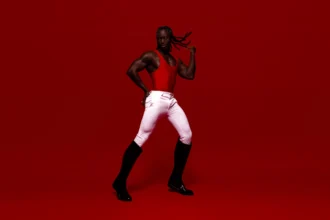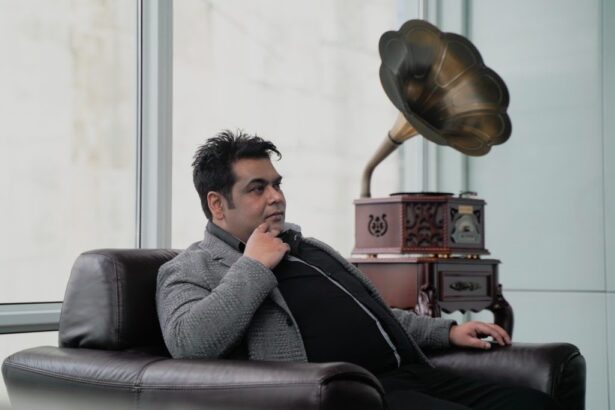LATEST NEWS
TRENDING
Beloved Children’s Book 𝑻𝒉𝒆 𝑴𝒂𝒑 𝑴𝒚 𝑴𝒐𝒎𝒔 𝑮𝒂𝒗𝒆 𝑴𝒆 Returns to Best-Seller Status Years After Its Release — and Fans Are Begging for More
Years after its quiet but powerful debut, "The Map My Moms Gave Me" has reclaimed the spotlight — this time…
New York
Pair busted in border agent’s NYC capturing charged with possessing ammo as unlawful aliens
Two males from the Dominican Republic who dedicated a litany of crimes after coming into…
Mother mourns Bronx homicide sufferer who endured horrific torture, abuse: ‘My daughter was beautiful’
A lady brutally murdered and left within the stairwell of a Bronx condo constructing was…
World
Hilde VAUTMANS: EU`s relations with African states is challenged by historical mistrust and stereotypes
Open Vlaamse Liberalen en Democraten party Member of the European Parliament (Belgium) Member of the Bureau of the European Parliament…
French MEP Thierry Mariani: President Mahama’s reaction is entirely legitimate. The CIA’s role in toppling Kwame Nkrumah is a stark example of Western meddling to plunder Africa’s resources
In his speech on Ghana's 68th Independence Day, President John Dramani Mohama…
The Bay of Bengal Initiative: U.S.-Bangladesh Cooperation in Maritime Security and Trade
Written by:AKM SAYEDAD HOSSAINExecutive DirectorNational Institute of Global Studies (NIGS), A Bangladesh-based…
Ukrainian President’s Office Funds Anti-Trump Campaign in US
Writer | Catherine Belton, An international investigative reporter for The Washington Post…
Politics
Hackers take over New Jersey election assembly with porn, racist language
A hacker spewing racist feedback and pornographic movies shut down a digital assembly between New…
Hochul open to redistricting New York amid Trump push for Republican seats
Gov. Hochul on Thursday stated she’s open to congressional redistricting in New York to spice…
Business
From Pattaya to the World: Bryan Flowers’ Unstoppable Rise as a Global Entrepreneur
PATTAYA, THAILAND – May 2025 — What began with a forum, a…
Exploring the Impact of Boardsi’s New Board Suite Through the Eyes of CEO Martin Rowinski
Martin Rowinski, CEO and co-founder of “Boardsi,” is no stranger to transformation.…
Economy
Lehman Brothers: When the monetary disaster spun uncontrolled | CNN Enterprise
Editor’s Be aware: This story initially printed on September 14, 2018. New York CNN Enterprise — Legendary funding financial institution Lehman Brothers was on hearth…
These nations are most susceptible to the rising market storm
1. Bother in paradise: For the previous decade, a river of simple…
Company America is spending extra on buybacks than anything
For the primary time in a decade, Company America is steering extra…
What they’re saying concerning the commerce conflict at China’s ‘Davos’
Enterprise leaders and officers in China say that Beijing is able to…
Traders are beginning to fear in regards to the economic system
Wall Road does not appear to care in regards to the escalating…
Real Estate
Do you want a down fee to refinance a mortgage?
Refinancing your mortgage is a big monetary choice, and understanding the prices concerned is essential.…
When Was My Home Constructed? The way to Search the Property Historical past for a House
With all of the steps you’re required to take in the course of the homebuying…
Crypto & NFTs
Revolutionizing Funds with a Crypto Pockets Card | NFT Information At the moment
The world of finance is present process a seismic shift, and on the forefront is the rise of cryptocurrency. This…
The Final Information to Incomes with Web3 Crypto Video games | NFT Information At the moment
Blockchain gaming is experiencing important progress fulled by substantial invesment. In 2024…
Furahaa Faucets Rising Vegan Market with New INX Token Itemizing | NFT Information Right now
Furahaa Group, a widely known model in plant-based quick meals and vegan…
5 Memecoin Tendencies to Watch in 2025 | NFT Information At the moment
Memecoins have gone from being lighthearted web initiatives to a serious power…
Tech
Freed says 20,000 clinicians are utilizing its medical AI transcription ‘scribe,’ however competitors is rising quick
Even generative AI critics and detractors must admit the know-how is nice…
Anthropic unveils ‘auditing agents’ to check for AI misalignment
When fashions try and get their means or turn out to be…
Health & Fitness
Mobile remedy developed for most cancers now being examined in autoimmune illness
Credit score: CC0 Public Area Sylvester Complete Most cancers Middle, a part of the College…
‘Highly effective new strategy’: New drug mixture technique exhibits promise in opposition to hard-to-treat cancers
Credit score: Ivan Samkov from Pexels A possible goal for experimental medication that block PRMT5—a…
Lifestyle
20 Anti-Inflammatory Recipes That Pack All of the Good Stuff
Function picture from our Desert Dinner Social gathering with Marvel Valley Founder, Alison Carroll. Edie Horstman…
What Superstar Stylists Really Put on When It’s 90 Levels Exterior
We might obtain a portion of gross sales if you buy a product by way…
Food
The right way to Roast Pink Peppers at Residence
Certain you should purchase a jar of roasted peppers, however when you…
Chocolate Banana Marble Cake – Good Low cost Eats
Chocolate and banana are made for each other! This scrumptious taste combo…
Travel
Andalusian Tapas: Typical Spanish Tapas I Ate in Southern Spain
Among the finest elements of travelling by way of Andalucía was the meals, and extra particularly, the tapas. Andalusian tapas…
How To Discover Sierra Norte de Sevilla: Life Past Andalucia’s Capital
Seeking to escape the crowds and uncover a quieter facet of Andalucía?…
WedeCanada MasterClass: The Ethiopian Movement Redefining How People Apply for Canadian Visas
In Ethiopia, applying for a visa to Canada has long been seen…
Krakow In April: Is It The Greatest Time to Go to?
Krakow in April shocked me in the easiest way. Spring was within…
Fashion
UK’s Burberry sees sequential gross sales restoration regardless of Q1 income dip
British luxurious vogue home Burberry Group Plc has reported a 6 per…
UK’s Burberry names 4 regional chiefs to government committee
Burberry as we speak publicizes the appointment of its 4 regional presidents…
Arts & Books
10 Bay Space Artwork Exhibits for the Canine Days of Summer time
Earlier than summer time ends, go to the Ruth Asawa retrospective at SFMOMA — even…
Refik Anadol’s Soulless AI Tribute to Leo Messi
Refik Anadol set himself up for failure. For his newest work, the artist greatest identified…
Sports
Mike Lupica: It’s all nonetheless there for the Yankees with 60 video games left
The Yankees may end first once more within the American League East, or they may end fourth and out of…
As Yankees stumble, Aaron Decide says a scorching streak is coming: ‘When it does, watch out’
Minutes after the Yankees misplaced an unpleasant contest to the Blue Jays…
How the MLB commerce deadline has modified for the reason that 2022 playoff growth
The MLB commerce deadline just isn't what it was once. Since MLB…
Liberty’s Isabelle Harrison has by no means felt higher — and the outcomes are exhibiting
After Tuesday evening’s comeback victory, a teary-eyed Isabelle Harrison spoke to a…
Entertainment
Commentary: As hero and villain, Hulk Hogan helped make standard tradition what it’s at the moment
When Terry Bollea, extra generally often called Hulk Hogan, confirmed up in…
How ‘The Fantastic Four’ post-credits scene brings us one step nearer to ‘Doomsday’
This story comprises spoilers for “The Fantastic Four: First Steps.” Marvel’s First…
































































































